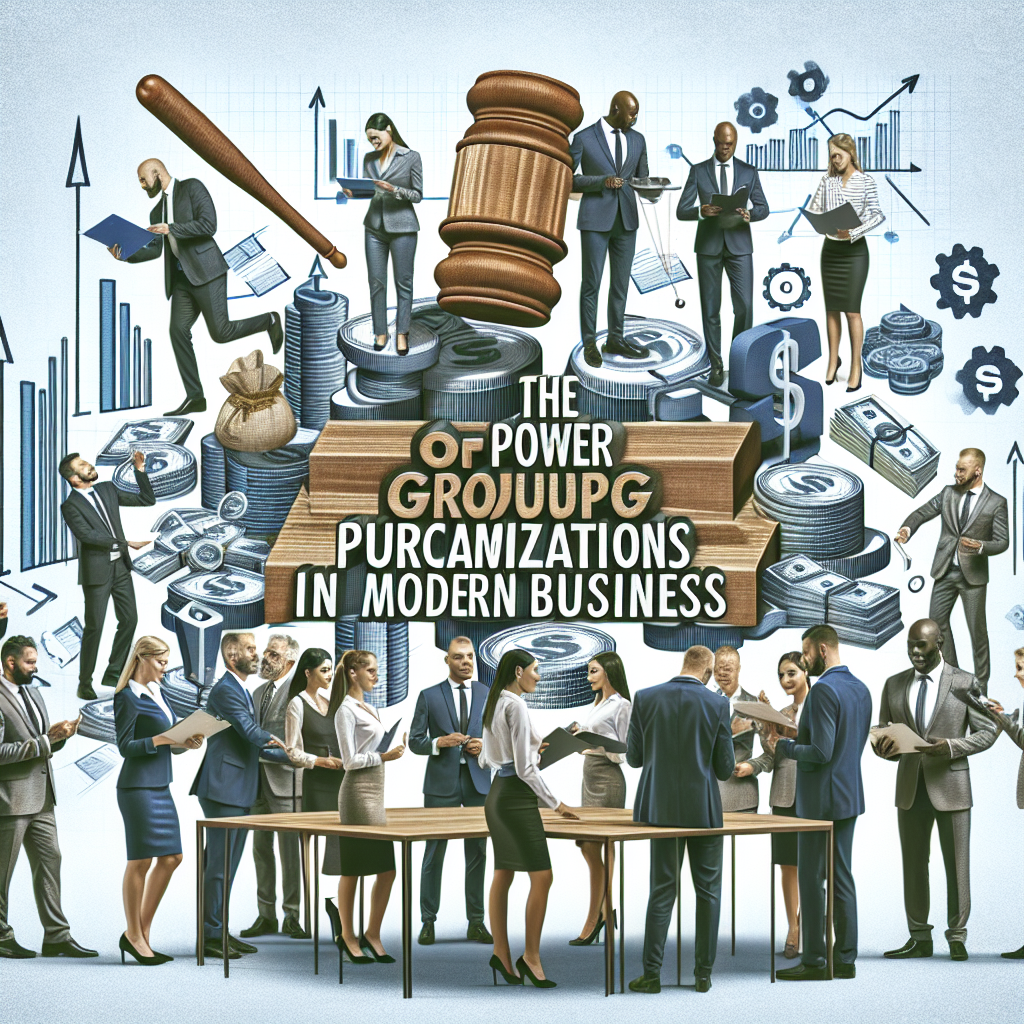Procurement compliance is a critical aspect of any organization’s operations. It ensures that the procurement process is conducted in a fair, transparent, and ethical manner, and that all relevant laws and regulations are adhered to. Compliance with procurement regulations is essential for maintaining the integrity of the procurement process, as well as for avoiding legal and financial repercussions. By ensuring compliance, organizations can also build trust with their stakeholders, including suppliers, customers, and the public. Additionally, procurement compliance helps to mitigate the risk of fraud, corruption, and other unethical practices within the procurement process. Overall, procurement compliance is crucial for promoting accountability, transparency, and good governance within an organization.
Furthermore, procurement compliance is essential for achieving value for money in the procurement process. By following regulations and standards, organizations can ensure that they are getting the best possible deals from suppliers, and that they are making efficient and effective use of their resources. Compliance also helps to prevent wastage and mismanagement of funds, which can ultimately lead to cost savings for the organization. In addition, compliance with procurement regulations can help to foster a competitive and fair marketplace, as it ensures that all suppliers have an equal opportunity to compete for business. Ultimately, procurement compliance is not just about following rules and regulations; it is about promoting fairness, efficiency, and accountability in the procurement process.
Key Regulations and Standards in Procurement Compliance
There are several key regulations and standards that organizations must adhere to in order to ensure procurement compliance. One of the most important regulations is the Public Procurement Act, which governs the procurement process for public sector organizations. This act outlines the procedures and requirements that must be followed when procuring goods, services, or works using public funds. Additionally, organizations must comply with various international standards, such as ISO 9001 for quality management and ISO 14001 for environmental management. These standards help to ensure that organizations are conducting their procurement processes in a responsible and sustainable manner.
Furthermore, organizations must also comply with anti-corruption laws and regulations, such as the Foreign Corrupt Practices Act (FCPA) and the UK Bribery Act. These laws prohibit bribery and corruption in business transactions, including those related to procurement. Compliance with these laws is essential for maintaining the integrity of the procurement process and for avoiding legal repercussions. Additionally, organizations must adhere to various industry-specific regulations and standards, such as those related to healthcare procurement or defense procurement. Overall, compliance with these regulations and standards is essential for ensuring that the procurement process is conducted in a fair, transparent, and ethical manner.
Developing a Compliance Strategy for Procurement
Developing a compliance strategy for procurement is essential for ensuring that an organization’s procurement processes are conducted in accordance with relevant laws and regulations. The first step in developing a compliance strategy is to conduct a thorough assessment of the organization’s current procurement practices and processes. This assessment should identify any areas of non-compliance or potential risk, as well as any gaps in existing policies and procedures. Based on this assessment, the organization can then develop a comprehensive compliance strategy that outlines the steps needed to achieve and maintain compliance.
One key aspect of developing a compliance strategy is to establish clear policies and procedures for the procurement process. These policies should outline the steps that must be followed when procuring goods, services, or works, as well as the roles and responsibilities of those involved in the process. Additionally, organizations should establish a system for monitoring and enforcing compliance with these policies, such as through regular audits and reviews. Furthermore, organizations should provide training and support to staff involved in the procurement process to ensure that they understand their obligations and responsibilities with regards to compliance. Overall, developing a compliance strategy for procurement requires a proactive and systematic approach to identifying and addressing potential areas of non-compliance.
Implementing Effective Procurement Compliance Processes
Once a compliance strategy has been developed, it is essential to implement effective procurement compliance processes to ensure that the organization’s procurement practices are conducted in accordance with relevant laws and regulations. One key aspect of implementing effective compliance processes is to establish clear guidelines and procedures for each stage of the procurement process. This includes defining the criteria for supplier selection, establishing clear evaluation criteria for bids or proposals, and outlining the steps that must be followed when awarding contracts.
Additionally, organizations should establish a system for monitoring and enforcing compliance with these processes. This may include regular audits of the procurement process, as well as ongoing reviews of contracts and supplier performance. Furthermore, organizations should establish mechanisms for reporting any potential breaches of compliance, such as through a confidential hotline or reporting system. By implementing effective compliance processes, organizations can ensure that their procurement practices are conducted in a fair, transparent, and ethical manner.
Navigating the Challenges of Procurement Compliance
Navigating the challenges of procurement compliance can be a complex task for organizations. One of the key challenges is ensuring that all staff involved in the procurement process are aware of their obligations and responsibilities with regards to compliance. This may require providing training and support to staff members, as well as establishing clear guidelines and procedures for each stage of the procurement process. Additionally, organizations may face challenges related to managing supplier relationships while maintaining compliance with relevant laws and regulations. This may require establishing clear criteria for supplier selection and evaluation, as well as ongoing monitoring of supplier performance.
Furthermore, organizations may face challenges related to ensuring that their procurement processes are conducted in a fair and transparent manner. This may require establishing mechanisms for reporting potential breaches of compliance, as well as conducting regular audits of the procurement process. Additionally, organizations may face challenges related to managing risk within the procurement process, such as preventing fraud or corruption. Overall, navigating the challenges of procurement compliance requires a proactive and systematic approach to identifying and addressing potential areas of non-compliance.
Monitoring and Evaluating Procurement Compliance
Monitoring and evaluating procurement compliance is essential for ensuring that an organization’s procurement processes are conducted in accordance with relevant laws and regulations. One key aspect of monitoring compliance is to establish regular audits of the procurement process. These audits should assess whether the organization’s procurement practices are being conducted in a fair, transparent, and ethical manner, as well as whether they are compliant with relevant laws and regulations. Additionally, organizations should conduct ongoing reviews of contracts and supplier performance to ensure that they are meeting their obligations.
Furthermore, organizations should establish mechanisms for reporting potential breaches of compliance, such as through a confidential hotline or reporting system. This can help to ensure that any potential issues are identified and addressed in a timely manner. Additionally, organizations should regularly evaluate their compliance processes to identify any areas for improvement or enhancement. By monitoring and evaluating procurement compliance on an ongoing basis, organizations can ensure that their procurement practices are conducted in accordance with relevant laws and regulations.
The Future of Procurement Compliance: Trends and Best Practices
The future of procurement compliance is likely to be shaped by several key trends and best practices. One key trend is the increasing use of technology to enhance compliance processes within the procurement process. This may include the use of data analytics to identify potential areas of non-compliance or risk within the procurement process, as well as the use of digital platforms to streamline supplier management and contract management.
Additionally, there is likely to be an increased focus on sustainability within procurement compliance processes. This may include establishing clear criteria for sustainable sourcing and supplier selection, as well as ongoing monitoring of supplier performance in relation to sustainability goals. Furthermore, there is likely to be an increased emphasis on transparency within the procurement process, including greater disclosure of information related to supplier selection and contract awards.
Overall, the future of procurement compliance is likely to be shaped by a continued focus on accountability, transparency, and sustainability within the procurement process. By embracing these trends and best practices, organizations can ensure that their procurement practices are conducted in accordance with relevant laws and regulations while also promoting fairness, efficiency, and accountability within their operations.





